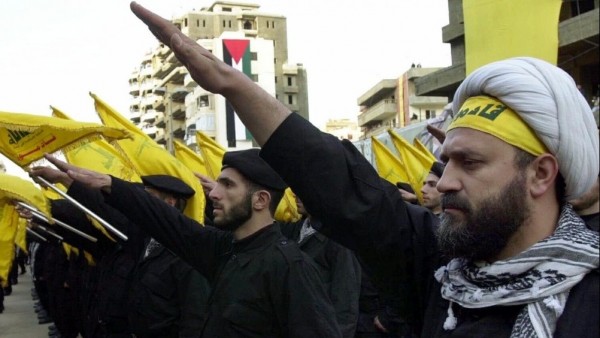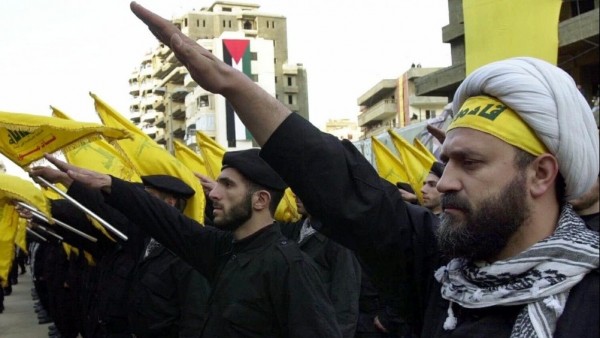By Makram Rabah

Empowering the army to implement the state of emergency would seriously curtail Hezbollah’s ability to carry out its logistical operations.
The Lebanese government was on the verge of declaring a state of national emergency that would lock down the entire country and grant the Lebanese armed forces extra-jurisdictional powers to enable them to limit the spread of the coronavirus.
However, the projected state of emergency was replaced by “total mobilisation,” which adopted the same measures but was short of empowering the Lebanese Army, which was met with bewilderment and outrage by the public.
The Lebanese Constitution allows the executive branch to declare a state of emergency to respond to or pre-empt imminent dangers. Empowering the Lebanese Army would have been the logical, not to say the ethical action to take, given that the Lebanese state and its various decrepit institutions lack the resources and the moral standing the Lebanese Army possesses with the public.
To understand the Diab government’s decision to settle for total mobilisation rather than a state of emergency one needs to understand the tensions the latter would have created between the Lebanese Army and Hezbollah.
Empowering the army to implement the state of emergency would seriously curtail Hezbollah’s ability to carry out its logistical operations, especially crossing in and out of Syria undetected, and would sooner rather than later place the Lebanese Army and this transnational militia at odds.
Despite having an implicit understanding with the Lebanese Army, Hezbollah always looks at this US-trained and -equipped institution with distrust and is always looking for ways to control it or render it ineffective.
On many occasions, the Lebanese Army found itself facing Hezbollah on matters related to jurisdictional and operational command and, despite having a coordination mechanism between the two, an Iran-sponsored militia and the legitimate army of the state cannot theoretically coexist.
During battles to root out Islamic State militants in eastern Lebanon, Hezbollah went out of its way to try to deny the Lebanese Army its much earned victory, one the entire country celebrated.
Despite the pandemic threat of the coronavirus, Hezbollah cannot afford to have its lifeline with Iran severed, especially the route that stretches from Beirut to Damascus that keeps it supplied with ammunition and, more important, fresh dollars.
That Hezbollah is accused of running many illegal border points with Syria, which it uses to keep a billion-dollar black economy going, is one more reason to refuse any oversight.
Coincidentally, keeping the Lebanese Army at bay even with the coronavirus is something that Hezbollah will continue to do even if this means exposing the Lebanese and their own constituency to further dangers.
A full army-administered lockdown would allow access to Hezbollah areas and perhaps expose the suspected under-reporting of the coronavirus in the Shia community. Those suspicions are hugely based on the fact that Hezbollah has been leading many pilgrim expeditions to Iran, not to mention that many of its militants train there and are believed to have been exposed to coronavirus.
By disenfranchising the Lebanese Army, the Diab cabinet missed out on another chance to stand up not only to the biological pandemic but also to the political diseases eating at the heart of the state. Settling for total mobilisation proved that the Diab government, as well as the ruling establishment, will only carry out matters that are sanctioned by Hezbollah and its leadership in Iran.
In a televised speech, Hezbollah Secretary-General Hassan Nasrallah reminded everyone that he was the only decision-maker, lecturing and advising his audience how to take precautions against the coronavirus. Interestingly, Nasrallah’s speech underscored the party’s mindset and flawed approach to any challenge. He said: “In any battle, there’s a target and an enemy, the problem in this battle is that the enemy is coronavirus.”
In this respect, Nasrallah proved to be no different from the hundreds of Americans who rushed to gun stores and supermarkets to stock up on bullets and on toilet paper, believing that the epidemic can be killed by guns or by double-ply tissue paper.
Deploying the Lebanese Army to fight the coronavirus is not only due to its tactical and logistical ability but rather because it is representative of a cross national/sectarian power base that would enhance unity and discipline, which are the only weapons humanity has to fight this disease and many like it.
In essence it has nothing to do with the issue of total mobilisation or declaring a state of emergency but how the Lebanese state continues to fail in the test of statehood and how Hezbollah has proven, time and again, that it is more dangerous to Lebanon’s future than any flu or doomsday disease for which, sooner or later, there will be a cure.
Makram Rabah is a lecturer at the American University of Beirut, department of history. His forthcoming book, “Conflict on Mount Lebanon: The Druze, the Maronites and Collective Memory,” (Edinburgh University Press) covers collective identities and the Lebanese Civil War.
THE ARAB WEEKLY


Leave a Reply
You must be logged in to post a comment.